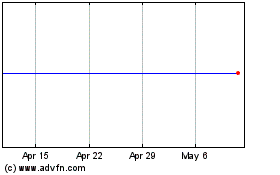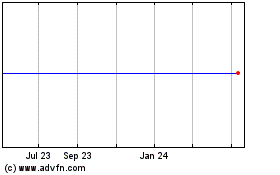Oil Industry Has Had To Learn Lessons From The Deepwater Disaster
April 11 2011 - 7:49AM
Dow Jones News
The Deepwater Horizon disaster in April 2010 was the largest
offshore spill ever in the U.S. It humbled one of the oldest,
biggest and most distinguished oil firms, BP PLC (BP.LN), forcing
it to set aside $20 billion in compensation and sacrifice its chief
executive. No wonder the oil industry is doing some soul
searching.
In response to the catastrophe, oil companies have taken
measures ranging from delaying drilling to devising new
technologies to contain giant spills. Big oil has also drastically
improved the oversight of contractors and training.
Soon after the disaster, BP postponed its offshore drilling
projects in Libya. This was before the current unrest forced it to
mothball its Libya strategy for the longer term. Moreover, Total SA
(TOT) of France said it would take a closer look at its deep water
CLOV project in Angola-before launching it August 2011.
Searching for oil deep under the sea tends to yield the reward
of huge gushers. But the blow-out preventer--the device used on a
rig to stop the release of natural gas--also has to deal with
unusual levels of pressure. This is critical to the safety of the
entire operation.
In the case of Deepwater Horizon, the device couldn't resist the
flow, which led directly to the catastrophe. The sheer scale of the
disaster also meant it took months to plug the well.
To make sure any response to another potential deep-sea oil leak
on this scale is swifter in the future, industry groups have worked
hard to design new technologies. In the U.K., an industry body
representing companies, unions and regulators, has asked Cameron
International Corp. (CAM), the specialist oil equipment engineer,
to build a device to close off or 'cap' a well in the event of a
blowout.
Separately, Exxon Mobil Corp (XOM), Royal Dutch Shell PLC
(RDSA), Chevron Corp (CVX) and ConocoPhilips (COP) have jointly
pledged $1 billion to design a containment system that would
rapidly respond to deep-water spills in the Gulf, with an initial
version of the equipment planned for delivery in February. In
addition, BP, along with governments in countries like Angola, have
said they will tighten audits on rigs.
Another issue pointed out in reports on the disaster-lack of
proper training, notably of contractors--is also being addressed by
both BP and Total. However, only time will tell if this is enough
to prevent another tragedy on the scale of Deepwater Horizon.
By Benoit Faucon, Dow Jones Newswires; 00 44 20 7842 9266;
benoit.faucon@dowjones.com
-0-
Cooper Cameron (NYSE:CAM)
Historical Stock Chart
From Jun 2024 to Jul 2024

Cooper Cameron (NYSE:CAM)
Historical Stock Chart
From Jul 2023 to Jul 2024
